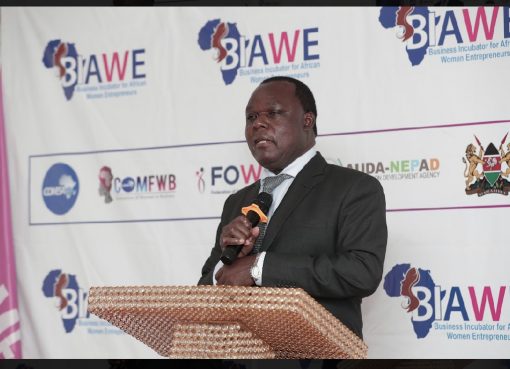The Ministry of Water, Sanitation, and Irrigation has partnered with Fresh Life to improve the sanitation sector by providing a model of innovation and financing which aims to sustain growth in the provision of safe sanitation access in informal urban settlements.
The partners launched Results-Based Financing (RBF) in Nairobi, which is an innovative financing framework that aims to provide sustainable and measurable growth in the provision of safe sanitation as a fundamental human right to non-sewered urban sanitation in Kenya.
Further, this innovative approach aims to enhance the delivery of sanitation services in Nairobi, where over 60 per cent of the population resides in informal settlements that are largely underserved with sewer systems.
Speaking during the launch, Fresh Life Executive Director and Co-Founder Lindsay Stradley said the launch of the RBF initiative marks a new era for the urban sanitation sector in Kenya, a mechanism that represents a significant step towards achieving universal access to improved sanitation.
“By focusing on results, we can ensure that every shilling spent translates into real, measurable improvements in public health and quality of life,” stated Stradley, adding that the partnership with Nairobi Water would serve 100 per cent of the people with safely managed sanitation that aims to increase the proportion of those living in informal settlements in the non-sewered areas with great sanitation.
While she underscored the government agenda for Sustainable Development Goals, Stradley noted that Kenya has its work cut out to alter the current trajectory and attain universal coverage by achieving the targeted 40 per cent sewer and 60 per cent non-sewered coverage by 2030.
“In Nairobi only, 52 per cent of the people have safely managed sanitation, the sector facing a funding gap of Sh652 billion, with the deficit provision of safe sanitation in urban areas estimated at Sh365 billion,” revealed Stradley.
To fund this gap, she maintained that it was necessary to leverage on public-private partnerships and blended financing mechanisms to attract private and commercial investments and that the introduction of RBF for urban non-sewered sanitation by Fresh Life marked a significant step towards bridging this gap.
In order to increase the accountability in the use of funding, the Director insisted on the measurement of the three results contained in the RBF, which would only be paid after the achievement of those results.
At the same time, Stradley commended Fresh Life’s proven track record of delivering over 7,500 container-based toilets and waste management services as a not-for-profit enterprise reliant on grant funding.
Additionally, she predicted that RBF would set the precedent for future paid service contracts between the government and Fresh Life for further scale and sustainability.
Stradley also highlighted the three predefined results for Fresh Life’s RBF model, including the number of container-based toilets added to the Nairobi network, the total number of operational toilets, and the number of barrels of pit latrine waste received at Fresh Life’s Mtaa Fresh stations.
“These three metrics cover the work of Fresh Life in Nairobi to ensure service is provided and sustained while safely removing waste from low-income communities,” she explained while announcing that the mechanism would be funded by Grand Challenges Canada (GCC) and the Osprey Foundation.
Meanwhile, Festus Mutuku, a Senior Water Engineering Superintendent from the Ministry of Water, Sanitation, and Irrigation, said the government’s role is to create an enabling environment for the private sector and implementing partners.
“The Ministry has been at work, strengthening coordination at the national and county level and with non-state actors to enhance urban sanitation,” said Mutuku, adding that the government has formed sanitation groups and workshops to manage sanitation.
By Sharon Atieno and Risper Shirin





